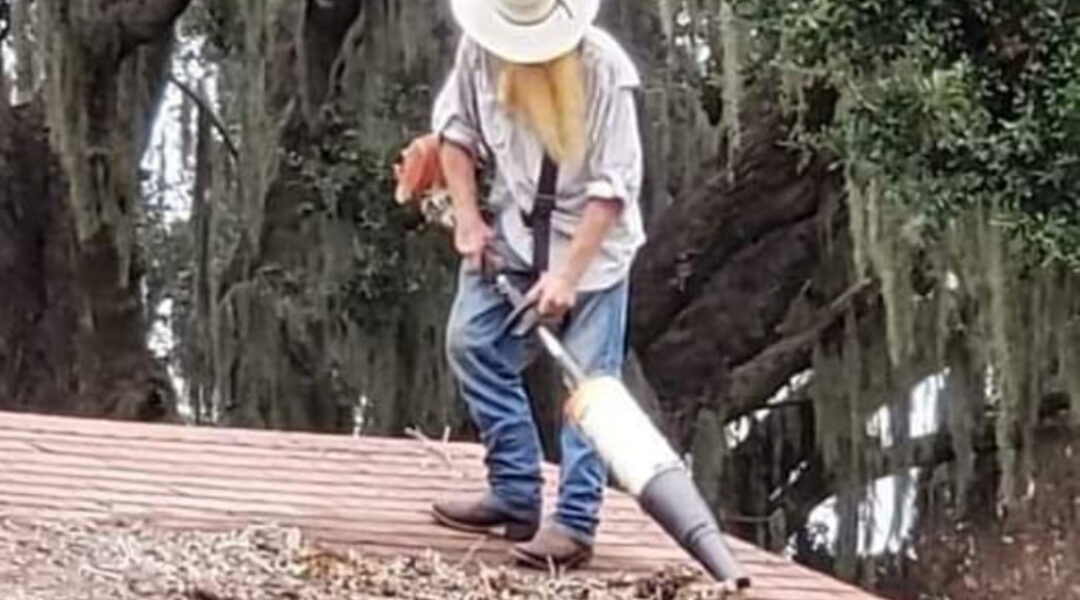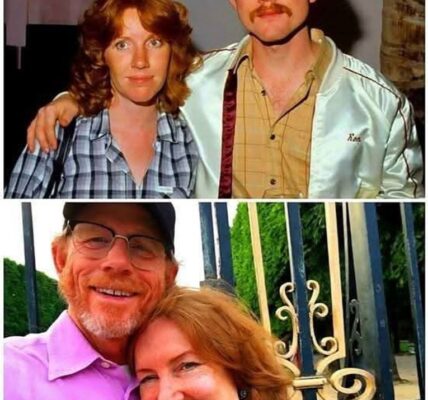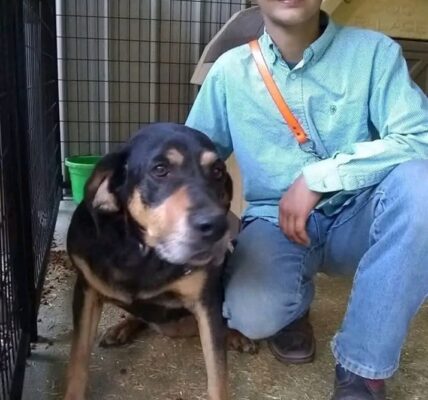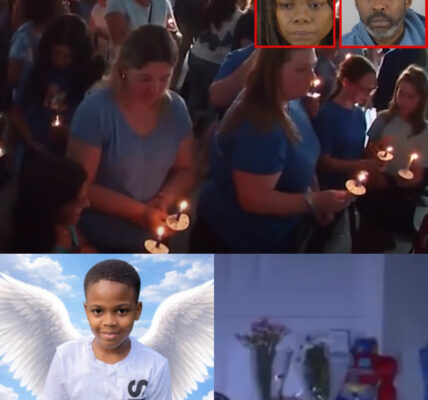
The morning sun had just begun to rise over the fields, spilling a soft golden light across the fences and barns.
I stood on the porch with a cup of coffee in hand, watching him already hard at work. He’s not the kind of man most people notice — no shiny truck, no polished boots, no new clothes. His shirt was faded, his jeans torn, his hands rough and scarred from decades of labor. But to me, he’s the heart of this place.
People call him my “farm hand,” but that title doesn’t come close to describing what he really is.
He’s my partner in keeping this land alive, the man who shows up before sunrise and often stays long after sunset. He doesn’t ask for much — never has. And truth be told, I can’t afford to pay him much either. Times are tough. Money’s tight. But we’ve found something that works for both of us — a kind of old-fashioned barter, built on trust and shared respect.
He keeps his washing machine and a small freezer in my barn, running them off my electric. He’s got a garden plot out back where he grows his vegetables. I let him run a couple of cows on my land, and he studs them with my bull when he needs to.
He borrows my trailer when he has a haul to make, and I never have to worry about it coming back damaged or late.
In return, I get something far more valuable than cash ever could buy — a man who knows this land, who knows how to fix things I can’t, who has the kind of farm sense you can’t learn from books.
He can patch a fence, mend a pipe, repair a motor, and somehow make something out of nothing. Years of living lean have taught him to “make do,” and it’s a skill that has saved me more times than I can count.
Today, he’s working on the roof of the calf nursery barn — putting tin up by hand, slow and steady, humming to himself. It’s hot, it’s hard, and it’s not glamorous. But he doesn’t complain. He just works. That’s who he is.
He’s on his own schedule, always has been. Some days he’s here from dawn till dark, other days he’s off hog hunting or helping a neighbor with a broken tractor. But when there’s an emergency — when a storm rolls in and the fences go down, or a calf is born in trouble in the middle of the night — I know I can call him. No matter the hour, no matter the weather, he’ll show up.
That kind of loyalty doesn’t come from a paycheck. It comes from heart.
Still, not everyone sees him the way I do. Because of how he looks — the old clothes, the long beard, the quiet nature — people talk. They whisper. They make assumptions. Some even gossip about me, spinning stories that say more about their own meanness than anything real.
But I’ve learned something about small towns — people will always find something to say, especially about kindness they don’t understand. And kindness, I’ve come to realize, is exactly what keeps this world turning.
He’s been with me for years now. Together, we’ve seen storms tear through the crops, droughts dry up the pastures, and winters that felt endless. We’ve lost animals, fixed what we could, and kept pushing forward. There’s no contract, no formal agreement — just a handshake and mutual respect.
Sometimes, when the day ends and the sun sets behind the barn, we sit on the tailgate with a couple of sodas, watching the fireflies come out. We don’t say much — we don’t have to. Gratitude doesn’t always need words.
I think about how easy it would’ve been to overlook him, to let judgment or gossip cloud my view. But then I remember how many nights he’s shown up without being asked, how many problems he’s quietly solved, how many times he’s proven that worth isn’t measured in appearance — it’s measured in reliability, honesty, and heart.
So yes, I call him my farm hand. But he’s so much more than that.
He’s living proof that there are still good people out there — people who give more than they take, who show up without fanfare, who work with pride and humility even when the world turns a blind eye.
To me, he’s a reminder that not all payment comes in dollars. Sometimes it comes in trust. In shared labor. In the simple peace of knowing that when life gets hard, someone’s got your back.
And as I stand there watching him on that barn roof, the sunlight catching the edge of the tin he’s laying, I whisper a quiet thank you — not just for the work he does, but for the kind of man he is.




